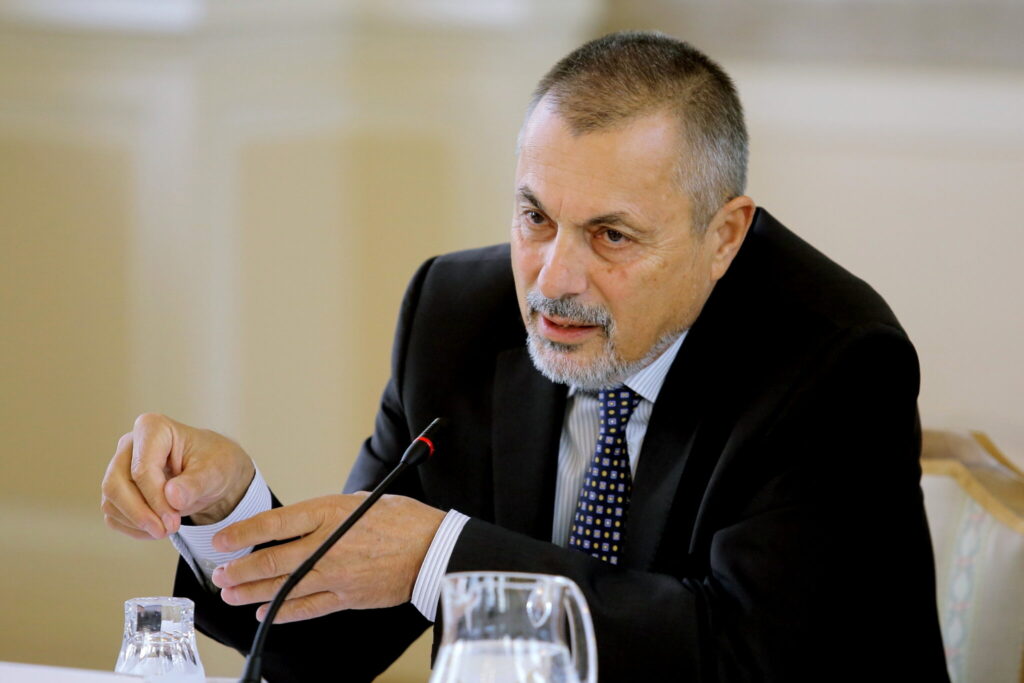“Janez Janša’s letter is state-building from the point of view of the EU and patriotic from the point of view of the national interest of the Republic of Slovenia: we, Slovenians, also expect the epidemic to end soon, along with the crisis effects on the economy and public finances. The Slovenian initiative has a good chance of making the rebellious veto authors and the rest of the European Union think again, as the European Union has no choice but to follow the tradition of smart compromises that contributed to the existence and development of the Union as the cultural and political, if not the economic centre of the world,” the former Constitutional Court Judge Peter Jambrek, Ph.D., said about Janez Janša’s letter to the European leaders. Jambrek also believes that Janez Janša’s message is an independent contribution to the political philosophy of the Ljubljana Initiative, the first signatory of which is the President of the Republic of Slovenia.
Prime Minister Janez Janša’s letter caused quite a stir in the media, and the reactions were expected, stereotypical and without serious professional analysis. Therefore, it is clear that the goal was to publicly slander the otherwise important and state-building initiative by the Slovenian Prime Minister.
We asked Peter Jambrek, Ph.D., the professor of legal sciences, former Judge of the Constitutional Court, a Slovenian intellectual and the author of many books, for a comment. He told us that the first impression that the reader gets from the letter is freshness, straightforwardness, personal motivation and vision, as well as good English skills, which emphasizes the personal statesmanship hurt of the writer. “In contrast with what certain comments published in the Slovenian media outlets are saying, the prevailing impression is that the Slovenian statesman has no intention of intervening in the dispute between the EU and the countries that gave a constitutionally valid veto on the July EU decision on providing financial assistance to member states to overcome the health crisis. He has no intention of being their lawyer, nor joining them.”
This is an important contribution to the political philosophy of the Ljubljana initiative
Jambrek believes that Janša is trying to determine the dimensions of the current multifaceted EU crisis, in light of the German Chancellor’s slip in the summer of 2015, the UK’s withdrawal, the urgent changes that are happening in the world order between the most powerful countries, not to mention the security problems of terrorism at the heart of the Western civilization. “In this context, Janez Janša emphasizes the importance of consensus and unity between nations, peoples, and the EU member states, for resolving the mother of all crises – today’s pandemic with all its social, economic and political effects.”
Jambrek estimates that the Slovenian Prime Minister, with a stateman-like consideration, found that it is wise to seek a solution, based on two fundamental value decisions: the strict protection of the EU’s external borders, and the resolute defence of any freedoms within the borders of our wider European Union homeland, including respect for the sovereignty of the countries, peoples, and nations of the Union. “Pro domo sua, I would therefore consider Janez Janša’s current message to be an independent contribution to the political philosophy of the Ljubljana Initiative, the first signatory of which is the President of the Republic of Slovenia,” Jambrek said, adding that Janez Janša’s letter is state-building from the point of view of the EU, and patriotic from the point of view of the national interest of the Republic of Slovenia: “We, Slovenians, also expect the epidemic to end soon, along with the crisis effects on the economy and public finances. The Slovenian initiative has a good chance of making the rebellious veto authors and the rest of the European Union think again, as the European Union has no choice but to follow the tradition of smart compromises that contributed to the existence and development of the Union as the cultural and political, if not the economic centre of the world.“
Sara Kovač


